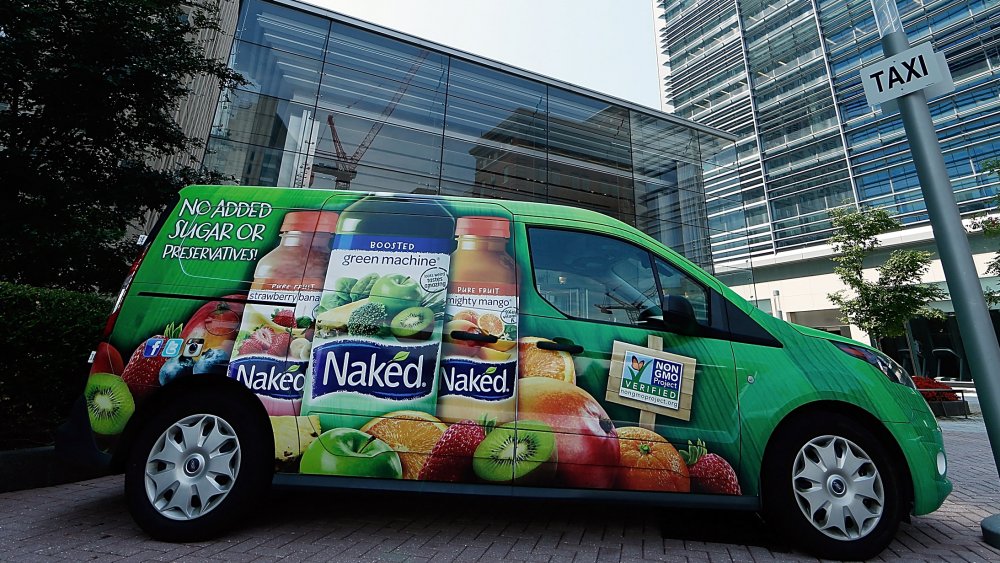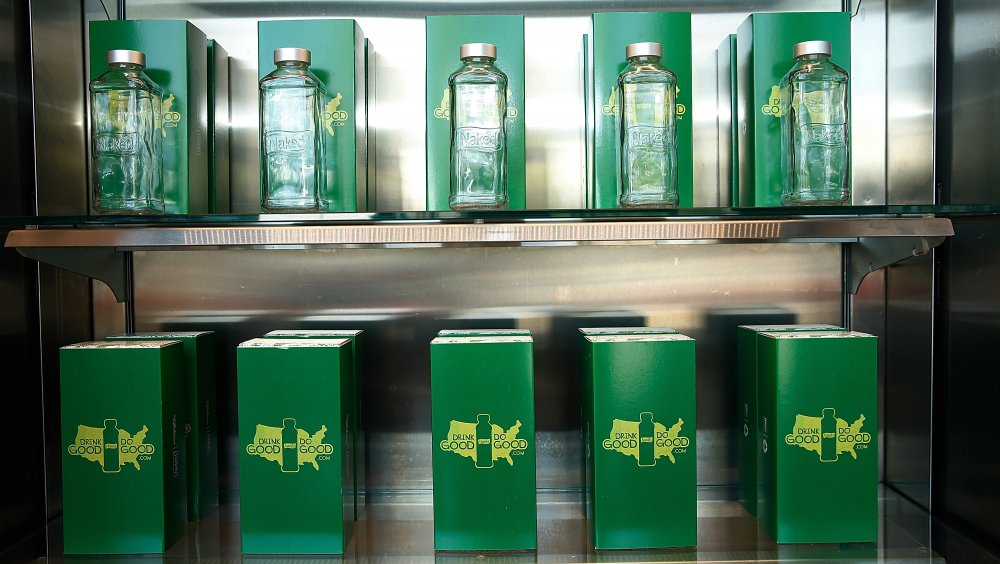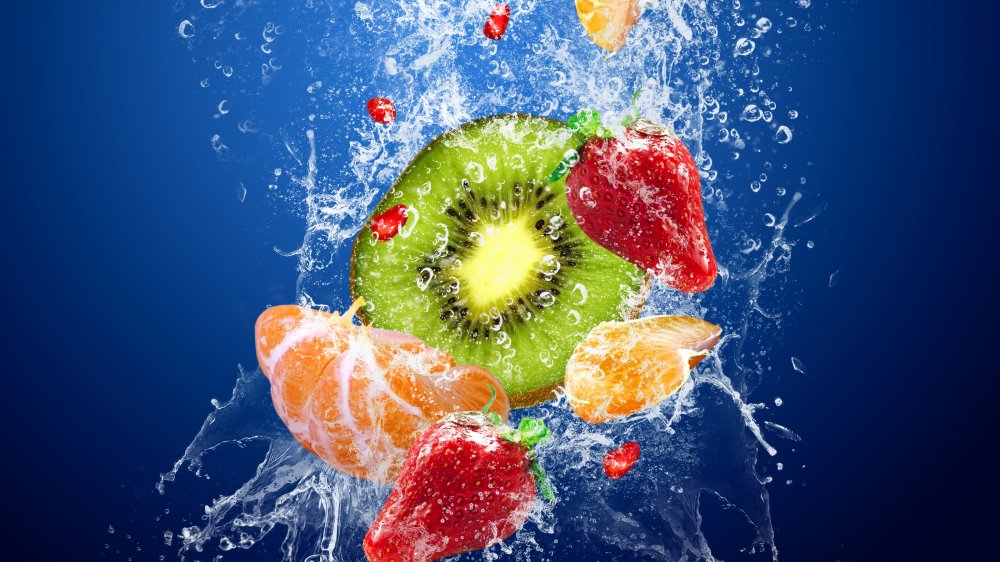Read This Before Drinking Naked Juice
It can be hard to know which health claims are to be believed on food and beverage labels. CBS News notes that descriptors such as "Non-GMO," "organic," and "all-natural" can be poorly defined, and inconsistently-applied across foods and drinks. So that leads to the question: When you buy "natural" what are you really getting?
Take Naked Juice. The name of the product suggests you are about to uncap and sip a pure, unprocessed drink. But as philosopher G.E. Moore explains, the "naturalistic fallacy" isn't reality; just because something is natural does not inherently make it better (via Ethics Centre). And this turned out to be exactly the case with Naked Juice. Because it turns out this natural-sounding fruit juice that you may have picked up at the grocery or convenience store was a little too good to be true. So what is in a bottle of Naked Juice? The naked facts may surprise you.
The bare essentials of Naked Juice
Healthline explains the "Naked" part of the name comes from the fact that the juice doesn't contain artificial flavors, preservatives, or added sugars. Per ABC News, up until 2013, the drink was marketed as "all-natural," containing "100 percent juice," and devoid of GMOs. One might say it strips away the fake stuff you find in more processed beverages. But a closer look reveals some disturbing facts. Take the flavor Green Machine, for instance. Ignoring the irony that an "all-natural" drink is also called a machine, you might notice that it's packed with sugar while lacking the fiber associated with fruits and vegetables.
A single 15.2-ounce bottle contains 53 grams of sugar and 1.3 grams of fiber. The calorie-count clocks in at 270. Other flavors, such as Red Machine, may contain 320 calories. That's because fruit juices naturally contain high concentrations of sugar, since they're produced from multiple servings of fruit. So while you're not drinking a bottle of obesity or diabetes, all this natural sugar could contribute to both if not consumed in moderation.
Naked truth or underlying lie?
The consumer group Center for Science in the Public Interest tried to sue the pants off of Naked Juice in a class action alleging that the advertising exaggerated the drink's healthiness and misrepresented the ingredients. As Business Insider describes, CSPI argued that emphasizing the absence of added sugars belied the fact that a single bottle of Naked's Pomegranate Blueberry juice contained roughly 50 percent more sugar than a 12-ounce can of Pepsi. The maker of Naked Juice would certainly have known this because it's PepsiCo.
The suit also accused the company of using GMO ingredients and tricking customers into thinking the drinks contained more cherries, berries, kale, and other foods than they actually did. CSPI described the primary contents as "cheap, nutrient-poor juices" such as apple and orange juice. Naturally, PepsiCo denied any wrongdoing. But it nonetheless agreed to a $9 million settlement in which it would pay up to $75 to anyone who could prove they purchased a Naked Juice between 2007 and 2013, and up to $45 to people without proof.
A PepsiCo spokesperson also announced Naked Juice would no longer be labeled as "all natural" even as she insisted the drink was "made with all-natural fruits and vegetables-with no added sugar and no preservatives." That might all be true, but it still might not be good for you.


